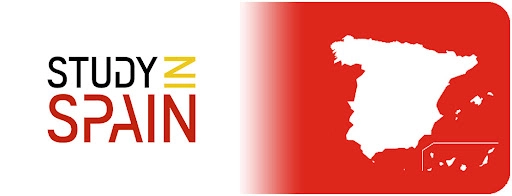
Top MFin Colleges in Spain
MFin Colleges in Spain: A SnapshotThinking about getting your Master of Finance in Spain? Great choice. Spain is now on…
Table of Contents

Thinking about pursuing a Masters in Finance (MFin) in Spain?
Spain has become a top destination for finance students, thanks to its world-class business schools, growing economy, and strategic location in Europe’s financial network. Whether you're considering an MFin or a full-fledged Masters in Finance in Spain, the country offers a unique mix of academic rigor and practical industry exposure.
With cities like Madrid and Barcelona hosting international banks, investment firms, and fintech startups, Masters in Finance in Spain programs provide the perfect blend of classroom learning and real-world application. Additionally, the cost of education is significantly more affordable compared to countries like the US, UK, or Switzerland—making it an excellent choice for students seeking a high return on investment.
This guide covers everything you need to know about pursuing a Masters in Finance in Spain—from top universities and career prospects to tuition fees, eligibility, and application requirements.

If you're considering a Masters in Finance in Spain, or simply exploring your options across Europe, you might be wondering what makes this country stand out. Here are some compelling reasons why pursuing an MFin in Spain could be the right move for your career:
An MFin in Spain means studying at some of the world’s most respected institutions. Spain is home to top-tier business schools like IE Business School, ESADE, and EADA, all of which consistently rank among Europe’s best for finance education. These programs offer:
Another major benefit of pursuing an MFin in Spain is the proximity to financial hubs like Madrid and Barcelona, which host the headquarters of major banks, investment firms, and emerging fintech companies. These programs often provide:
One of the most attractive aspects of an MFin in Spain is its cost-effectiveness. While programs in the UK, Switzerland, or France can exceed €40,000–€60,000, most leading finance programs in Spain are priced between €20,000–€40,000. This makes it a smart investment for students seeking top-quality education without the hefty price tag.
For non-Spanish speakers, an MFin in Spain is still a highly accessible option. Many of Spain’s premier business schools offer their finance programs entirely in English, making it easier for international students to thrive both academically and socially—and to connect with global recruiters during and after the program.
Spain is home to some of Europe’s most prestigious business schools, offering world-class Masters in Finance (MFin) programs that attract ambitious students from around the globe. If you’re looking for an MFin in Spain with global recognition, cutting-edge curriculum, experienced faculty, and strong ties to the financial industry, here are the top institutions to consider:
Business School | Duration | Tuition Fees (€) | Special Features |
| IE Business School | 10-12 months | ~41,000 | Fintech, digital finance, strong corporate ties |
| ESADE Business School | 12 months | ~37,500 | Risk management, financial strategy, international exposure |
| EADA Business School | 9 months | ~26,500 | CFA affiliation, hands-on learning, good placement rates |
| UPF Barcelona School of Management | 1 year | ~16,500 | Research focus, strong in quantitative finance |
| University of Navarra | 1 year | ~21,000 | Ethics in finance, globally connected faculty |

Getting into a top Masters in Finance (MFin) in Spain requires meeting certain academic and professional criteria. While exact requirements vary by institution, most schools follow a common framework to assess applicant potential. Here’s what you typically need to qualify for an MFin in Spain:
To pursue an MFin in Spain, you’ll generally need a bachelor’s degree in finance, economics, business, or a closely related field.
Many top MFin in Spain programs either recommend or require a competitive GMAT or GRE score.
Since most MFin programs in Spain are taught in English, non-native speakers must demonstrate language proficiency.
Work experience requirements for an MFin in Spain vary:
To complete your MFin in Spain application, prepare the following documents:

One of the biggest advantages of pursuing a Masters in Finance in Spain is its affordability compared to other top European destinations like the UK and Switzerland. However, costs vary depending on the university, location, and lifestyle choices.
Your cost of living depends largely on where you stay. Cities like Madrid and Barcelona are more expensive than smaller cities.
Expense Type | Cost per Month (€) | Cost per Year (€) |
| Accommodation | 400 - 1,200 | 4,800 - 14,400 |
| Food & Groceries | 200 - 400 | 2,400 - 4,800 |
| Transportation | 50 - 100 | 600 - 1,200 |
| Health Insurance | 50 - 100 | 600 - 1,200 |
| Miscellaneous (leisure, phone, etc.) | 100 - 300 | 1,200 - 3,600 |
| Total Estimated Cost | 800 - 2,100 | 9,600 - 25,200 |
One of the biggest reasons students opt for a Masters in Finance in Spain is the strong career potential the country offers. The career after MFin in Spain is both dynamic and global in scope, thanks to Spain’s position as a growing hub for financial services, fintech innovation, and multinational corporations.
Graduates of top MFin programs in Spain—such as those from IE Business School, ESADE, and EADA—are well-positioned to secure roles across diverse sectors, including:
Spain also offers generous post-study work visa options that allow international students to stay and seek employment after graduation, further strengthening the prospects for a successful career after MFin in Spain.
In short, whether you want to stay in Europe, move to another global financial hub, or return to your home country with a European degree in hand, the career after MFin in Spain opens up high-impact roles and long-term career growth.
